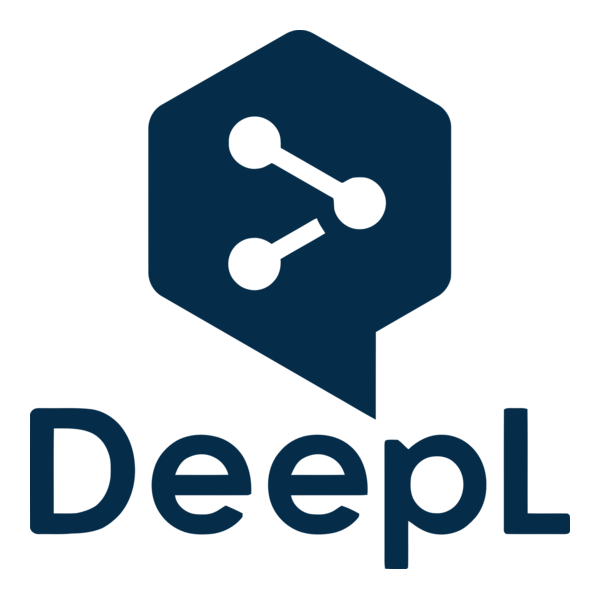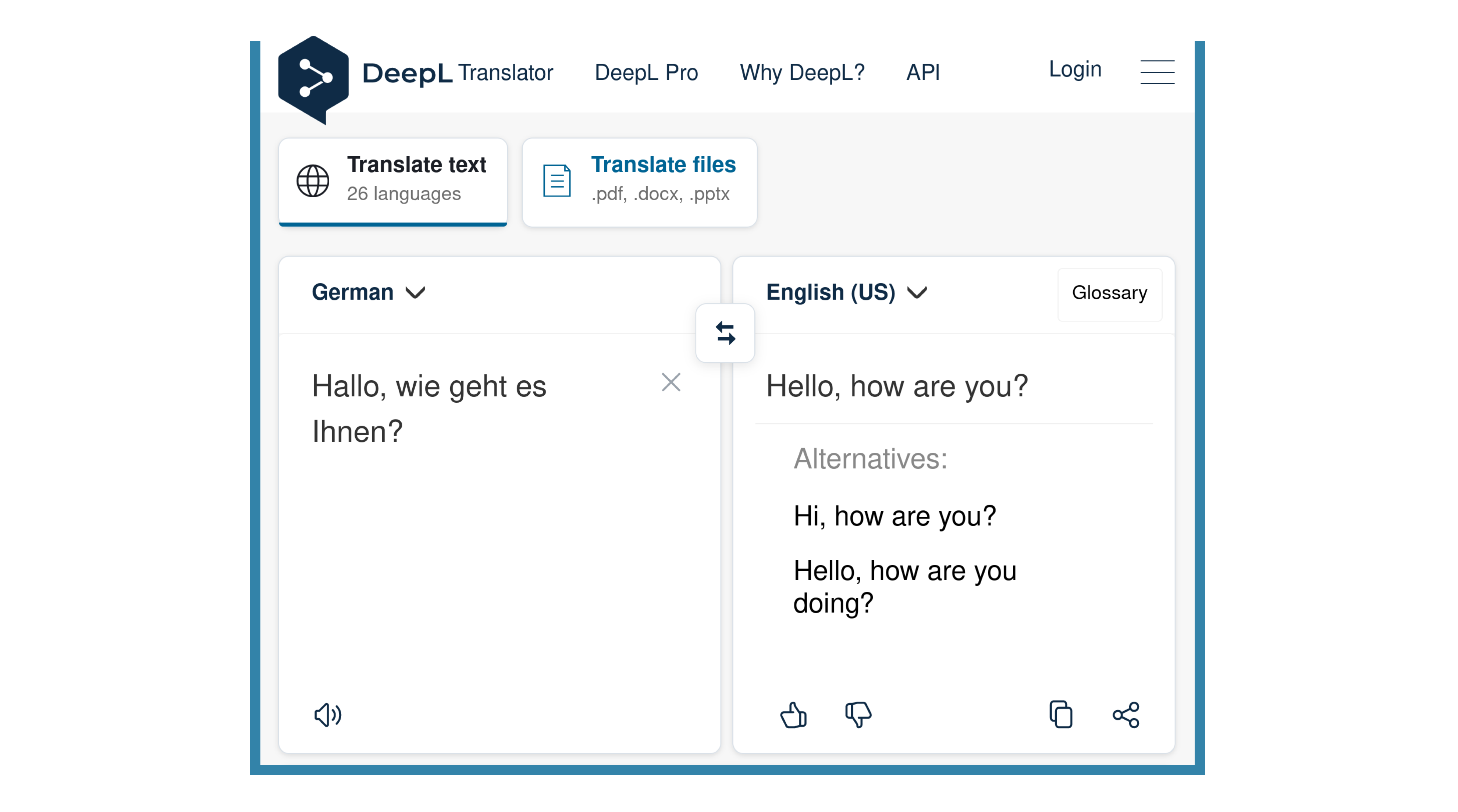
DeepL Business: Complete Buyer's Guide
Premium AI translation solution for European-focused ecommerce operations
DeepL Business positions itself as the premium AI translation solution for European-focused ecommerce operations seeking accuracy-first localization strategies. The platform leverages proprietary large language models to deliver contextually precise translations across 31 languages, with documented superiority in European markets but acknowledged limitations in global coverage[44][48].
Market Position & Maturity
Market Standing
DeepL Business occupies a premium niche position within the AI translation market, targeting quality-focused organizations over broad-coverage competitors. The vendor competes on accuracy rather than breadth, serving mid-market to enterprise retailers prioritizing European market success over global reach[44][48][58].
Company Maturity
Company maturity indicators demonstrate established market presence with documented enterprise customers including major European retailers like Alza and fashion brands like Kazar. These implementations provide credible evidence of operational scale and customer retention in target markets[45].
Growth Trajectory
Growth trajectory appears focused on deepening European market penetration rather than expanding global language coverage. The vendor's strategic partnerships and enterprise customer base suggest stable market position, though limited public information restricts comprehensive growth assessment[41][53].
Industry Recognition
The platform maintains SOC 2 Type II certification and comprehensive GDPR compliance, indicating mature security and regulatory frameworks essential for enterprise adoption[54].
Longevity Assessment
Long-term viability depends heavily on maintaining accuracy advantages as competitors improve European language capabilities. The platform's specialized positioning provides competitive protection but creates vulnerability to market shifts toward broader coverage requirements or significant accuracy improvements from general-purpose alternatives[44][48][58].
Proof of Capabilities
Customer Evidence
Enterprise customer validation demonstrates DeepL Business effectiveness across multiple European retail implementations. Alza, a major European internet retailer, automated catalog translations while maintaining operational quality standards, achieving measurable efficiency improvements in their localization workflows[45]. Kazar, a fashion retail brand, leveraged bulk translation capabilities to translate 'hundreds of thousands of product descriptions in minutes,' enabling accelerated market expansion across European markets[45].
Quantified Outcomes
Quantified performance outcomes from Forrester Consulting analysis reveal substantial business impact potential. The composite organization achieved 90% reduction in internal document translation time and 50% reduction in translation workloads, freeing resources for strategic initiatives while maintaining quality standards[49][51]. Financial analysis indicates €2.79 million in efficiency savings over three years with 345% return on investment, demonstrating measurable ROI for appropriate implementations[49][51].
Market Validation
Market validation emerges through documented customer success stories and measurable business outcomes. Forrester's analysis reports €2.79 million in efficiency savings and 345% ROI for composite implementations, though these figures require independent verification[49][51]. Customer testimonials from Kazar and Alza provide additional market validation for European retail applications[45].
Competitive Wins
Competitive displacement occurs primarily against general-purpose alternatives lacking specialized ecommerce features. Organizations choose DeepL Business over Google Translate for accuracy requirements, over basic translation tools for brand consistency needs, and over human-only processes for efficiency gains in bulk translation scenarios[44][48][58].
Reference Customers
Enterprise customers, notable implementations, and industry validation include major European retailers like Alza and fashion brands like Kazar[45].
AI Technology
DeepL Business leverages proprietary large language models specifically optimized for contextual accuracy in European languages, delivering measurable performance advantages over general-purpose alternatives like Google Translate[44][48].
Architecture
The platform's neural network architecture processes translations through sophisticated contextual analysis, achieving superior accuracy for complex business content requiring cultural nuance and brand consistency[44][58].
Primary Competitors
Primary competitive landscape positions DeepL Business against Google Translate for general-purpose translation, Language I/O for comprehensive language coverage, and Copy.ai for cost-effective alternatives[44][48][11][18][10].
Competitive Advantages
Competitive advantages center on superior contextual accuracy for European languages, brand consistency features through glossary customization, and GDPR compliance with European data residency options. Testing reveals DeepL Business outperforms Google Translate in accuracy for supported languages, while offering specialized ecommerce features absent in general-purpose alternatives[44][48][54][58].
Market Positioning
Market positioning strategy emphasizes quality over breadth, serving organizations prioritizing European market success over global reach. This approach enables premium pricing for specialized capabilities but limits addressable market to specific customer profiles with aligned requirements[44][48][58].
Win/Loss Scenarios
Win scenarios favor DeepL Business for European-focused retailers requiring high accuracy and brand consistency with technical resources for integration. Organizations expanding into European markets with substantial product catalogs and premium accuracy requirements represent optimal competitive positioning[45][44][48]. Loss scenarios occur when global language coverage exceeds European focus, budget constraints limit premium pricing tolerance, or technical resources cannot support integration complexity[11][18][44][48].
Key Features

Pros & Cons
Use Cases
Integrations
Pricing
Featured In Articles
Comprehensive analysis of Chat Translation for Ecommerce for Ecommerce businesses and online retailers. Expert evaluation of features, pricing, and implementation.
How We Researched This Guide
About This Guide: This comprehensive analysis is based on extensive competitive intelligence and real-world implementation data from leading AI vendors. StayModern updates this guide quarterly to reflect market developments and vendor performance changes.
59+ verified sources per analysis including official documentation, customer reviews, analyst reports, and industry publications.
- • Vendor documentation & whitepapers
- • Customer testimonials & case studies
- • Third-party analyst assessments
- • Industry benchmarking reports
Standardized assessment framework across 8 key dimensions for objective comparison.
- • Technology capabilities & architecture
- • Market position & customer evidence
- • Implementation experience & support
- • Pricing value & competitive position
Research is refreshed every 90 days to capture market changes and new vendor capabilities.
- • New product releases & features
- • Market positioning changes
- • Customer feedback integration
- • Competitive landscape shifts
Every claim is source-linked with direct citations to original materials for verification.
- • Clickable citation links
- • Original source attribution
- • Date stamps for currency
- • Quality score validation
Analysis follows systematic research protocols with consistent evaluation frameworks.
- • Standardized assessment criteria
- • Multi-source verification process
- • Consistent evaluation methodology
- • Quality assurance protocols
Buyer-focused analysis with transparent methodology and factual accuracy commitment.
- • Objective comparative analysis
- • Transparent research methodology
- • Factual accuracy commitment
- • Continuous quality improvement
Quality Commitment: If you find any inaccuracies in our analysis on this page, please contact us at research@staymodern.ai. We're committed to maintaining the highest standards of research integrity and will investigate and correct any issues promptly.